Editorial note: this is a lightly edited republication of the speech given by Leo Igwe at the American Atheists National Convention in Philadelphia on 30 March 2024.
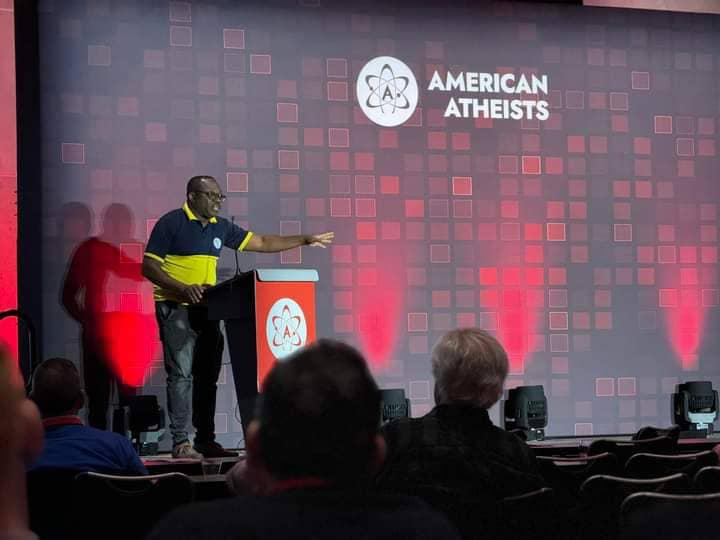
Thank you American Atheists for the opportunity to address this convention, my first time doing so and hopefully not the last. I speak here not in my capacity as a board member of Humanists International but as a concerned atheist committed to seeing the flourishing of freethought around the globe. I speak here as a fellow human being determined to slowly undo whatever obstructs the free exercise of reason, the rights and liberties of non-believers, and the realization of a more secular world.
When I founded the Humanist Association of Nigeria in the 1990s, American Atheists was among the organisations that I contacted. Most of what I read about atheism and freethought mainly concerned what organisations like yours were doing: promoting the separation of church and state and equal rights for believers and non-believers. For many years I corresponded with the leaders of American Atheists and I received your magazines and read about your activities, including the challenges you faced trying to grow and organise atheism here in the US.
So make no mistake about it: what you do here in America, here at the American Atheists, inspires many people across the globe, including atheists who live in places like Sudan, Malaysia and, Egypt where atheism and humanism dare not mention their name.
While we may be continents apart, our destinies are shared. Christian nationalism is not only a threat to democracy and human rights here in the US but also in Uganda, Nigeria, and Ghana. Many African countries face additional threats from traditional religious superstitions, Islamic nationalism, and separatism. That is why atheists need to rethink and reenvision how they organise around the globe, bearing in that atheism is not American. Humanism is not Western. The exercise of freethought is universal. The yearning for freedom without favour and equality without exception is global.
The world is undergoing rapid change. And as the world is changing, so must the way atheism is organised. The world has become more interconnected than at any other time in history. And as the world interconnects, so must the way we build freethought communities. Today more than ever, we must commit to promoting atheism without borders and secularism beyond borders.
As you are aware, two years from now, American Atheists will be hosting the World Humanist Congress. This international event brings together atheists, humanists, rationalists, secularists and, other non-religious persons from different parts of the world. The Congress provides an opportunity for non-theistic people to meet, socialise, discuss, and debate issues of common interest and concern. I am looking forward to that event and I believe that you are looking forward to it, too. As we convene here and warm up to congregate in Washington, D.C. in two years, let me share my hopes for the future and my thoughts on and visions for a new direction for the atheist and humanist movement.
[T]he atheist/humanist movement has largely been consigned to one part of the world, the West, while religion rages with force and ferocity across the globe.
When our forebears met in 1952 and founded the International Humanist and Ethical Union, now Humanists International, they knew that the values of church/mosque-state separation, the civil liberties of non-theists, and the freedom of religion and from religion would only grow and flourish on Earth if the non-religious constituency connected and networked beyond national borders. They knew that for atheism and humanism to flourish in their fullness, their outlook must be global and become transnationally effective. They knew that in the face of global inequalities, resources must be shared. They knew that freethinkers must be creative and innovative in organising. They knew that atheists must cooperate for their shared vision of shared prosperity to be realised.
But seven decades and two years after that meeting, the atheist/humanist movement has largely been consigned to one part of the world, the West, while religion rages with force and ferocity across the globe. Non-theism has not become a transnational effective alternative to dogmatic religion and supernaturalism as envisaged by our founders. And one of the regions where the atheist/humanist movement has fallen short of its promises is my continent, Africa.
Religion persists in Africa, not because Africans are hardwired to be religious, not because Africans are notoriously religious. No, not at all. Religion persists not because there is something uniquely fulfilling in the Christian or Islamic faith. Religion is widespread in Africa because an effective alternative to these religions is missing; because the atheist and humanist movement has failed to organise and address the needs of the non-religious constituency in the region.
Faiths that Western and Eastern religious imperialists introduced to much of Africa centuries ago still have the adherence of the majority of the population because the atheist and humanist movement has been unable to match the power, influence, and funding of the Euro-American evangelicals and their Arab, Middle Eastern Islamic counterparts. Based on my experiences over the years, I am offering a pact for a global rebirth of the atheist/humanist movement. This pact provides a pathway to a better and more exciting future, allowing us to use what is right with our organisation to fix what is wrong with the movement. It is based on the ideas that we can do more and we can do better, that we are in this together, and that no matter how we choose to describe or identify as non-religious, we are one family and one community.
The statistics say that the non-religious constituency is nonexistent in most African countries. Why? Because in these places, blasphemy and apostasy laws exist and force millions of atheists and humanists to live in closets and pretend to be religious. Millions cannot express their non-belief in the Christian or Islamic god due to fear of being attacked, persecuted, imprisoned, or even murdered with impunity. I offer you a pact that will help us confront this disturbing trend and ensure that the next 70 years of atheism will not be like the last. This pact, which enables the connection and representation of the known and the unknown atheists, the visible and the invisible atheists, and the recognised and the forgotten members of the global atheist/humanist community, rests on four pillars: education, leadership, cooperation, and community,
The atheist/humanist movement values education and has in its ranks distinguished scientists, philosophers, and other intellectuals. Unfortunately, the educational facility has been underutilised. Those who are non-religious or are indifferent to religion seek knowledge and nourishment for an ethical and responsible life. We must commit to delivering an effective educational program that satisfies this need.
For too long we have operated on the assumption that those who come on board and join the movement know enough and understand enough about who we are, how to be, and how to belong locally and internationally. This way of operating has yielded limited results. It has not worked for the movement in Africa and the global south. It has not made us internationally effective. We can no longer continue to operate on the assumption that everyone is educated or knowledgeable enough to be and to belong. Joining the movement should include a process of education about the movement, including information about what we do, how we live, where we live, the challenges we face in various places, and how we are grappling with these challenges beyond the concerns and interests of our local groups. We need to put in place mechanisms for continuous international education and reeducation.
Part of education entails doing away with those crude stereotypes of people from other races and regions, abandoning those prejudices and misrepresentations that have hampered our ability to galvanise energies, seize opportunities, and organise atheists and humanists in other parts of the world. At the moment, we know very little about ourselves and others, and because we know very little, we are less involved and less engaged. So we have to commit to establishing and strengthening departments that address local and international educational needs.
[T]he atheist movement cannot continue to rely on ad-hoc, self-appointed, and self-taught leaders to handle these issues.
This pact also urges the atheist movement to invest in leadership training programs because there are many problems around the world today that, to be solved, require the kind of leadership that humanists, atheists, and secularists can provide. We can no longer continue to operate as a global organisation and community without having in place resources to train our future leaders. We need to establish and run faculties that train and graduate spokespersons and representatives every year. The atheist and humanist movement needs an international program that equips aspiring leaders with communication, conflict resolution, team building, and problem-solving skills, as well as other competencies that they need to be effective representatives. The issues that atheists face in the world today are complex and sometimes life-threatening. They require expertise and the atheist movement cannot continue to rely on ad-hoc, self-appointed, and self-taught leaders to handle these issues.
For too long, we have operated on the assumption that anyone who says ‘I am a humanist leader’ is a humanist leader. In many cases, an email or postal correspondence makes one a leader to be entrusted with local and international roles and responsibilities. We need to review this approach and put in place mechanisms that will attract our best and brightest to lead. Unfortunately, what we have at the moment is not working. In Africa, most young people are unemployed or underemployed. They are looking for paid employment, not volunteer jobs and opportunities. Most young people cannot volunteer. It is the same with the elderly. Most of them retire into poverty and bankruptcy. Tired and demoralised, they cannot offer free services. So we cannot sustainably grow based on ad-hoc leadership and volunteerism.
We need a strategy to incentivise leadership that aligns with the needs and realities in Africa and the global south. We need a training institute where aspiring leaders from different parts of the world can come together, learn together, and train together. This leadership school will deliver its programs online, offline, or in a hybrid form. Part of this leadership mechanism includes mobilising resources to sponsor, support, and manage aspiring leaders. I am working with Kevin Jagoe and the education department of the American Humanist Association to put together an international leadership course that meets the needs of our time. And today I urge you to support this initiative and help give the atheist movement the leadership that it deserves.
There is very little cooperation in the humanist/atheist movement. And it hurts. As a global minority, atheists must collaborate to maximise their limited resources, grow, and become a force to be reckoned with. If we understand each other and have programs where our leaders learn and train together, then we can work together more efficiently. Our organisations can more effectively collaborate. There is very little cooperation in the global atheist movement because there is limited understanding. Because we know very little about one another, we do very little with one another. Because there is little cooperation, the global atheist/humanist movement has yet to live up to its full potential.
Because we know very little about ourselves—about our needs, intentions, and aspirations—and because we sometimes rely on prejudices and stereotypes to relate to one another, we trust very little and we care very little. And with a low level of trust, a robust community cannot be formed. The challenges that atheists and humanists face in other parts of the world seem very distant and are designated as ‘their’ challenges, not ‘ours’. But if we learn to see the problems of other atheists as our problems, their risks and dangers as the risks we all face, then their progress becomes our progress. If we learn to treat each other with love and respect rather than contempt and condescension, we will forge a sense of solidarity that will be the envy of the world.
This century beckons on the atheist movement to respond to the yearnings and aspirations of freethinkers and secularists across the world with a renewed sense of hope, vision, and commitment.
25 years ago I travelled for my first World Humanist Congress in India. Since then, I have been to many countries in Europe and Asia, and I have been to Australia and New Zealand. I have been to over 15 states here in the US. I did not go to these places because I wanted to go on a holiday. I did not go to these countries because I wanted to use the opportunity to migrate or seek asylum. I travelled to these places because I was driven by a burning desire to understand, connect, and collaborate with people of like minds. I travelled to these places to forge communities of reason, compassion, and critical thinking. That yearning persists as I speak here. That desire burns in the hearts and minds of other atheists and humanists that I have met in the past 28 years, including those in countries where the statistics claim that there are very low percentages of non-believers.
This century beckons on the atheist movement to respond to the yearnings and aspirations of freethinkers and secularists across the world with a renewed sense of hope, vision, and commitment. Let us be that generation that worked and connected atheists in ways that had never before been the case. Let us be that generation that forged a sense of solidarity too often missing, too often ignored, but so much cherished. Based on a commitment to all and responsibility from all, let us work to fulfil that need to belong and to be loved that lurks in the hearts and minds of non-theists across the globe.
There are risks and dangers associated with atheism. It is in addressing these risks that the atheist movement has grown. The risks that atheists face in places like Sudan, Malaysia, Afghanistan, and Indonesia are not dangers that we should flee from but threats that we must confront and face down. They are opportunities that we must seize, to test the power of our ideals and values. Let us answer this call to duty, rally our energies, and realise a more effective global atheist movement. Let us overcome the complacency that has limited the growth and development of freethought and stop making excuses. This is our chance. Our moment is now. Let us provide leadership and forge a sense of fellowship and community that befits an outlook which finds its plenitude in this one life that we have.
Atheism in the 20th century was judged based on the progress that freethought and secularism made in the West. In this century, it is different and it will be different. Atheism and freethought will be judged based on the progress we make in places like Africa, Papua New Guinea, Bahrain, and the rest of the global south. And this progress can only be realized if atheists do more and do better. And we will!
Further reading on freethought in Nigeria
The price of criticising Islam in northern Nigeria: imprisonment or death, by Emma Park
Secularism in Nigeria: can it succeed? by Leo Igwe
Protecting atheists in Nigeria: the role of ‘safe houses’, by Hank Pellissier
How I lost my religious belief: A personal story from Nigeria, by Suyum Audu


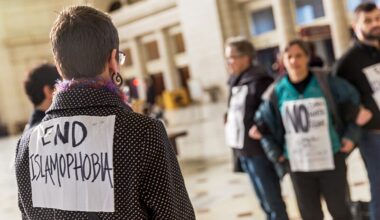
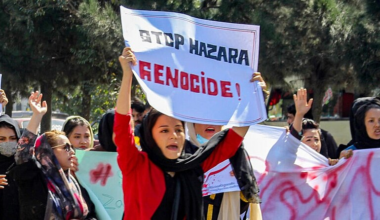


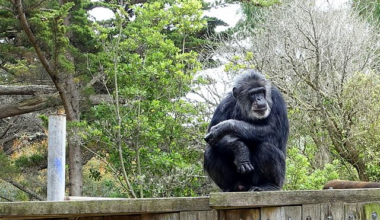
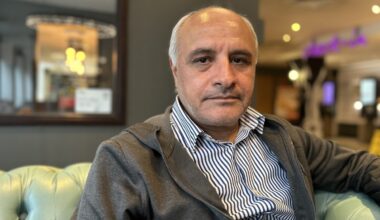
Your email address will not be published. Comments are subject to our Community Guidelines. Required fields are marked *
Donate